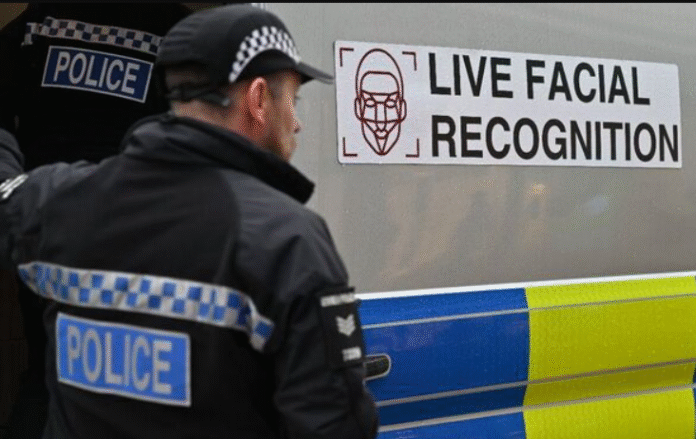Facial Recognition Cameras Warning: 5 Human Rights Concerns Raised
The growing use of facial recognition cameras by the Metropolitan Police has sparked major controversy in the UK. A new facial recognition cameras warning from the Equality and Human Rights Commission (EHRC) says the technology could be breaching human rights law, raising fresh concerns about privacy, freedom, and misuse of power.
While the Met claims the system is legal, effective, and responsible, critics argue that the current approach threatens key rights protected under the European Convention on Human Rights.
What Are Facial Recognition Cameras?
Facial recognition technology (FRT) works by scanning the faces of people captured on CCTV and comparing them against a database or “watchlist” of suspects. The Metropolitan Police have used live facial recognition (LFR) since 2024, leading to more than 1,000 arrests of individuals accused of crimes ranging from robbery to child exploitation.
The Met says LFR is a lawful and proportionate tool to keep London safe. However, civil rights groups and now the EHRC say the way it is currently deployed amounts to a facial recognition cameras warning that cannot be ignored.
EHRC’s Facial Recognition Cameras Warning
The Equality and Human Rights Commission has issued a strong critique of the Met’s current policy. According to EHRC chief executive John Kirkpatrick, the problem is not the technology itself but the lack of clear rules and proportional safeguards.

“There must be clear rules which guarantee that live facial recognition technology is used only where necessary, proportionate and constrained by appropriate safeguards,” Kirkpatrick said.
He added that the current Met policy “falls short of this standard.”
This facial recognition cameras warning emphasizes that without tighter regulations, the technology could erode rights to:
-
Privacy
-
Freedom of expression
-
Freedom of assembly
Met Police Response to Criticism
The Met Police strongly disagree with the EHRC’s assessment. A spokesperson said their policy is carefully designed to balance public safety with personal privacy.
They highlighted that the Court of Appeal has already confirmed police can use LFR under Common Law powers. According to the Met, the system plays a key role in cutting crime while protecting Londoners’ rights.
Despite this, privacy campaigners argue that LFR is being rolled out at major events like Notting Hill Carnival, raising fears of over-surveillance.
The Numbers Behind Facial Recognition
The Met says over 1,000 arrests have been made using LFR since January 2024. Of these, 773 suspects have already been charged or cautioned, including:
-
Alleged paedophiles
-
Suspected rapists
-
Violent robbers
Supporters argue these figures show the technology’s effectiveness in tackling serious crime. However, opponents believe such statistics do not justify the risks of misidentification and mass surveillance.
This balance between safety and rights lies at the heart of the facial recognition cameras warning debate.
Why Critics Say LFR Poses Risks
Civil liberties groups, including Big Brother Watch, have long opposed LFR. Their main arguments include:
-
Privacy invasion – Constant scanning of faces is seen as a breach of individual freedom.
-
Risk of errors – Misidentification could lead to wrongful arrests.
-
Disproportionate use – Deploying LFR at large public gatherings can chill free expression and peaceful assembly.
-
No specific UK law – Unlike other surveillance measures, there is no domestic legislation regulating live facial recognition.
These concerns reinforce the facial recognition cameras warning issued by the EHRC, highlighting the urgent need for legislation before wider adoption.
Calls for Clearer Regulation
Currently, the UK has no dedicated law regulating how police can use live facial recognition. Campaigners argue this leaves too much discretion in the hands of law enforcement.
The EHRC’s intervention in the upcoming judicial review could pave the way for stricter national safeguards. Until then, critics warn the Met is setting dangerous precedents by expanding its use at large public events.
For more background on how facial recognition affects rights, you can check the European Convention on Human Rights .
The Bigger Picture: Technology vs Rights
The rise of AI-driven surveillance worldwide has raised similar debates. From the U.S. to China, governments argue facial recognition makes cities safer. But privacy advocates see it as one step closer to a surveillance state.
The UK’s facial recognition cameras warning adds momentum to a global conversation: How much privacy are we willing to sacrifice for security?
Conclusion
The Equality and Human Rights Commission’s facial recognition cameras warning has reignited the debate over surveillance and civil liberties in the UK. While the Met insists the system is both legal and effective, human rights groups say its current deployment is neither necessary nor proportionate.

